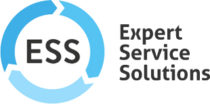Advantages of a cloud-based ERP One
At first, the cloud seemed like an intimidating concept, one that brought with it questions of security, reliability, function, and so on. But now, as acceptance for the cloud continues to grow, more and more companies (especially small businesses) are using it for their ERP systems due to the wealth of benefits that it comes with.
Cloud-based ERP vs on-premise ERP
A cloud-based ERP runs on software that uses the provider’s servers and the internet, and stores data on the cloud. An on-premise ERP uses your own servers and hardware, which is stored on your property.
Here are a few of the advantages of a cloud ERP and why it may be the right solution for your business.
Scalability
A cloud ERP has the opportunity to grow alongside your business. Whether you are in the same office or expanding across the country, you can set-up your cloud ERP software from anywhere. That means no need to install new hardware in new locations – it will work with the equipment you already have in place. Expansion can be as quickly as is needed and adjust to fit your own schedule. A provider will also manage regular ERP updates, so you can focus on growth while they focus on the system.
For companies just starting out, initial set-up is much quicker than setting up an on-premise ERP solution, too.
Free Trial
One of the biggest benefits of a cloud ERP is the opportunity to try the product for free. On-premise systems can be a big commitment, but a free trial ERP software allows you to ensure you like it before you commit. With Mobile Office Manager, we allow you to try all the features of our product, unlike some free trials that limit your access. That way you can ensure it’s right for you.
Customization
One big myth about cloud-based ERPs is that they can’t be customized to meet your needs. That’s simply not true. The right provider will work with you to meet your needs. They will take your feedback and create new features that work for you. It’s just a matter of finding one that offers the level of customization you need. It’s also important to find an ERP provider familiar with your industry so they can keep those trends and changes top of mind.
Reliability
It’s true that having a reliable provider is essential when selecting a cloud-based solution. Otherwise, outages could leave your business in the lurch as you wait for the system to work. However, as technology continues to advance, providers are becoming progressively more consistent in their service; it would not be in their best interest to allow frequent service interruptions to occur. Therefore, like with any decisions, you just have to find the right provider who has a solid reputation when it comes to reliability.
Security
Another myth is that cloud ERPs are less secure than on-premise ones. A good provider will be knowledgeable about all the latest security concerns and how to keep your data safe. They will encrypt your data that’s stored on the cloud and be hard at work on any new vulnerabilities to shore up their systems accordingly. They partner with clients to ensure the system is secure so that clients don’t have to worry about these issues all on their own.
Service Support
Selecting an ERP system can be intimidating, and one benefit of a cloud-based ERP is that there’s always a support technician who can guide you through using it. When ERPs are on-premise, it can be tricky to troubleshoot. But with a cloud ERP, support services are generally included, and issues can be resolved quickly. From on-boarding to questions to errors, ESS offers round the clock support for you.
Cost
It can be more cost-effective initially to get a cloud-based ERP because you aren’t paying the preliminary costs related to an on-premise system including hardware. Additionally, maintaining that on-premise system can mean added costs for updates and upgrades. An ERP provider will take care of the necessary updates which will be included in the cost of your service with them.
Want to learn more about ERPs? Ask us about our Mobile Office Manager ERP software now.



